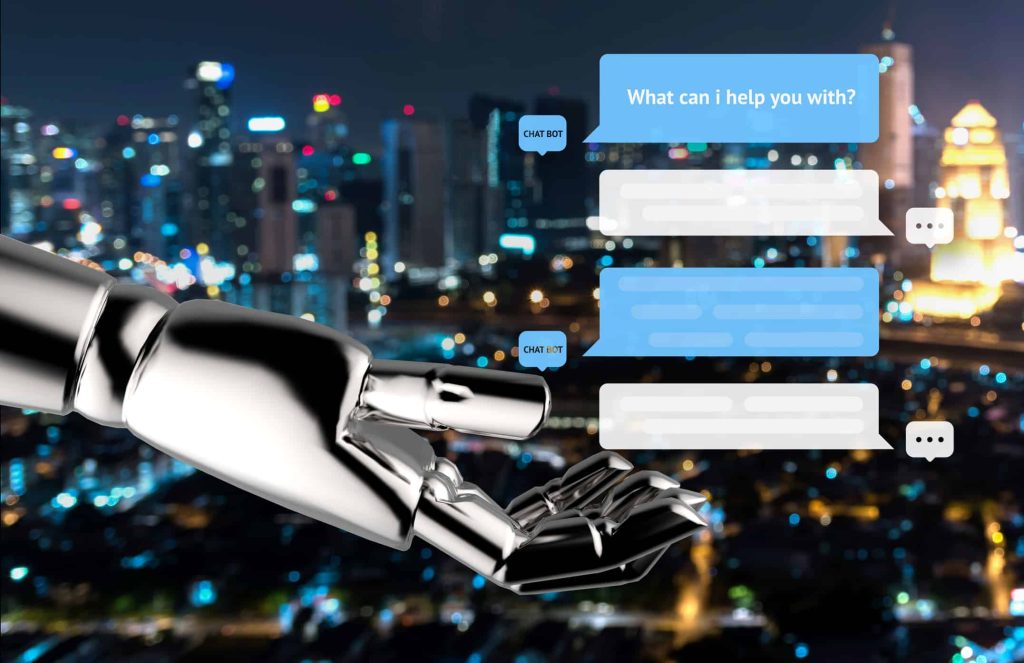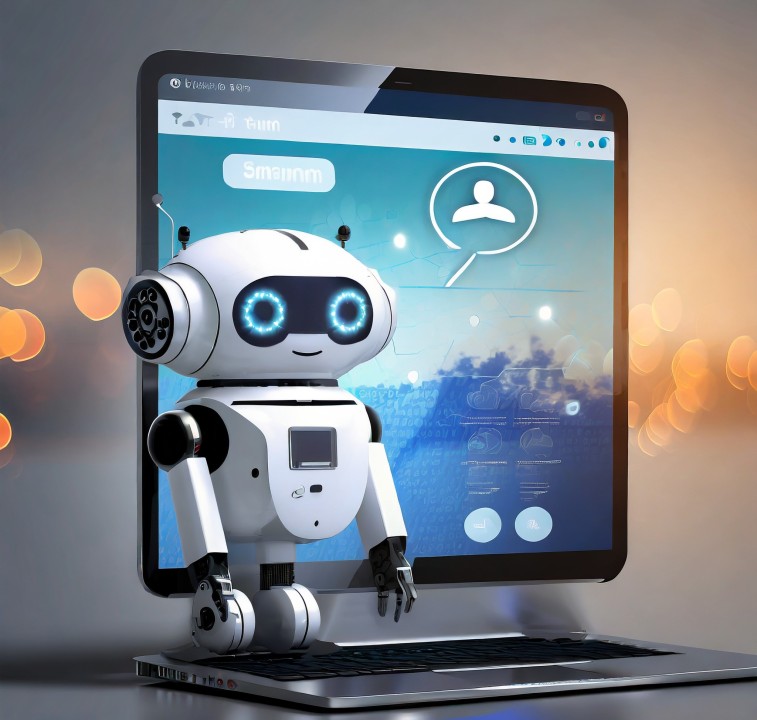In recent years, advanced chatbots have emerged as a significant innovation in the realm of digital communication and customer service. These sophisticated systems leverage artificial intelligence (AI) and natural language processing (NLP) to provide human-like interactions and enhance user experiences. This article explores the evolution, capabilities, applications, benefits, and challenges of advanced chatbots, as well as their potential impact on various industries.

The Evolution of Chatbots
- Early Chatbots:
- Historical Background: The concept of chatbots dates back to the 1960s with the creation of ELIZA, an early natural language processing program developed by Joseph Weizenbaum. ELIZA was designed to simulate a conversation with a psychotherapist and laid the groundwork for future developments in chatbot technology.
- Rule-Based Systems: Early chatbots operated using rule-based systems, relying on predefined rules and scripts to respond to user inputs. These chatbots were limited in their ability to understand and generate natural language, resulting in interactions that could often feel mechanical and repetitive.
- The Rise of AI and NLP:
- Machine Learning and NLP: The advent of machine learning and natural language processing technologies revolutionized chatbot development. Modern chatbots utilize machine learning algorithms to learn from vast amounts of data and improve their language understanding and response generation capabilities.
- Contextual Understanding: Advanced chatbots are designed to understand context, handle complex queries, and provide relevant responses. This improvement in contextual understanding allows for more meaningful and personalized interactions with users.
Capabilities of Advanced Chatbots
- Natural Language Processing (NLP):
- Understanding Human Language: Advanced chatbots leverage NLP to comprehend and process human language. This includes understanding syntax, semantics, and context to generate coherent and contextually appropriate responses.
- Sentiment Analysis: Many advanced chatbots incorporate sentiment analysis to gauge the emotional tone of user interactions. This enables chatbots to tailor their responses based on the user’s mood, improving the overall user experience.
- Machine Learning and Adaptation:
- Learning from Interactions: Advanced chatbots use machine learning algorithms to continuously learn and adapt from user interactions. This iterative learning process enhances their ability to handle a wide range of queries and provide more accurate and relevant responses.
- Predictive Capabilities: Some chatbots employ predictive analytics to anticipate user needs and offer proactive assistance. By analyzing past interactions and patterns, these chatbots can predict future queries and provide timely solutions.
- Multilingual Support:
- Language Diversity: Advanced chatbots can support multiple languages, enabling global businesses to interact with customers in their preferred language. This multilingual capability enhances accessibility and inclusivity for users worldwide.
- Real-Time Translation: Some chatbots incorporate real-time translation features, allowing users to communicate seamlessly across language barriers. This functionality is particularly valuable for international customer support and global collaboration.
Applications of Advanced Chatbots
- Customer Service and Support:
- 24/7 Availability: Advanced chatbots provide round-the-clock customer support, addressing queries and resolving issues at any time of day. This continuous availability improves customer satisfaction and reduces the need for human intervention.
- Automated Assistance: Chatbots can handle routine customer service tasks, such as answering frequently asked questions, processing transactions, and providing product information. This automation frees up human agents to focus on more complex and nuanced interactions.
- E-Commerce and Sales:
- Personalized Recommendations: In the e-commerce sector, chatbots can offer personalized product recommendations based on user preferences and browsing history. This tailored approach enhances the shopping experience and drives sales.
- Order Processing: Chatbots can assist with order processing, including tracking shipments, handling returns, and managing customer inquiries related to purchases. This streamlined process improves efficiency and customer satisfaction.
- Healthcare and Well-Being:
- Health Assessments: Advanced chatbots can perform preliminary health assessments by asking relevant questions and analyzing symptoms. While they are not a substitute for medical professionals, they can provide valuable information and guidance.
- Mental Health Support: Some chatbots are designed to offer mental health support by providing coping strategies, mindfulness exercises, and emotional support. These chatbots can complement traditional therapeutic approaches and offer accessible resources.
- Education and Training:
- Interactive Learning: Chatbots can facilitate interactive learning experiences by providing educational content, quizzes, and personalized feedback. This technology supports self-directed learning and enhances engagement.
- Training Simulations: In professional training, chatbots can simulate real-world scenarios and provide interactive exercises. This practical approach helps individuals develop skills and knowledge in a controlled environment.

Benefits of Advanced Chatbots
- Enhanced User Experience:
- Personalization: Advanced chatbots offer personalized interactions by analyzing user preferences and behavior. This personalization improves the relevance of responses and creates a more engaging experience.
- Efficiency: Chatbots streamline interactions by providing quick and accurate responses to user queries. This efficiency reduces wait times and enhances overall user satisfaction.
- Cost Savings:
- Reduced Labor Costs: By automating routine tasks and customer interactions, chatbots help organizations reduce labor costs and allocate resources more effectively. This cost-saving benefit is particularly valuable for businesses with high volumes of customer interactions.
- Operational Efficiency: Chatbots improve operational efficiency by handling multiple queries simultaneously and operating 24/7. This capability ensures that users receive prompt assistance without the need for additional staffing.
- Scalability:
- Handling High Volumes: Advanced chatbots can manage large volumes of interactions simultaneously, making them well-suited for organizations experiencing rapid growth or high customer demand.
- Flexible Integration: Chatbots can be integrated with various platforms, including websites, mobile apps, and social media channels. This flexibility enables organizations to reach users across different touchpoints and maintain consistent communication.
Challenges and Considerations
- Accuracy and Reliability:
- Response Quality: While advanced chatbots have made significant strides, ensuring the accuracy and reliability of responses remains a challenge. Chatbots must be continuously updated and refined to handle diverse queries effectively.
- Contextual Understanding: Despite advancements, chatbots may struggle with complex or ambiguous queries. Improving contextual understanding and handling nuanced interactions are ongoing challenges.
- Privacy and Security:
- Data Protection: Chatbots often handle sensitive user information, raising concerns about data privacy and security. Organizations must implement robust security measures to protect user data and comply with regulatory requirements.
- Ethical Use: Ethical considerations surrounding the use of chatbots, including transparency and user consent, are important. Ensuring that chatbots operate in an ethical and responsible manner is essential for maintaining user trust.
- Human Interaction:
- Balance with Human Agents: While chatbots can handle many tasks, there are instances where human intervention is necessary. Striking the right balance between automated and human interactions is crucial for providing a comprehensive and effective support experience.
The Future of Advanced Chatbots
- Continued Advancements in AI:
- Enhanced Capabilities: Future developments in AI and machine learning will further enhance the capabilities of chatbots, leading to more sophisticated and intelligent interactions. Advances in NLP and understanding will improve the quality and effectiveness of chatbot responses.
- Integration with Emerging Technologies: Integration with emerging technologies, such as augmented reality (AR) and virtual reality (VR), may offer new possibilities for interactive and immersive chatbot experiences.
- Greater Personalization:
- Tailored Interactions: As chatbots become more advanced, they will offer increasingly personalized interactions based on individual user preferences, behavior, and context. This personalized approach will enhance user engagement and satisfaction.
- Expanding Applications:
- Diverse Use Cases: The applications of advanced chatbots will continue to expand across various industries, including healthcare, finance, education, and entertainment. As technology evolves, chatbots will play an increasingly integral role in diverse aspects of daily life.

Conclusion
Advanced chatbots represent a transformative innovation in digital communication and customer service. By leveraging AI, NLP, and machine learning, these sophisticated systems enhance user experiences, streamline interactions, and offer valuable support across various domains. While challenges related to accuracy, privacy, and human interaction remain, the future of advanced chatbots holds great promise. As technology continues to advance, chatbots will play a pivotal role in shaping the future of interactive communication and driving innovation across industries.


